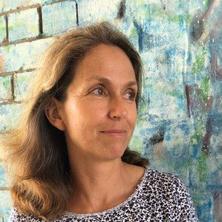NextGen Fertiliser: How technology and innovation will help to solve our nutrient crisis
Presenter
Susanne Schmidt, University of Queensland
Abstract
Fertiliser inefficiencies have enormous environmental costs, globally and locally. Our iconic Great Barrier Reef (GBR) is degrading and nutrient pollution is a main contributor. The GBR lagoon receives 6-times more nitrogen (N) than natural backgrounds, approximately 80,000 tons annually, and N-pollution reduction targets remain unmet. This long-standing problem is caused by fertilisers used in broad-acre agriculture that rapidly dissolve and are readily lost from soil.
Authorities and stakeholders agree that the nutrient problem demands disruptive and transformative innovation. Enhanced efficiency fertilisers (e.g. plastic-coated urea) can reduce N losses, but release patterns remain difficult to control. We take a new approach with the aim to better synchronise nutrient supply and crop demand. Capitalising on innovation in material science and process engineering, we are developing NextGen fertiliser to support a future circular nutrient economy without pollution and waste.
Our multi-disciplinary consortium of scientists, engineers and industry partners breaks new ground to address the constraints of current fertilisers that are costly for the environment and prevent many tropical crops from reaching their yield potential.
The NextGen platform is complemented by re-purposed wastes, biodegradable coatings, crop-beneficial microbes and biostimulants, combined with processing technology. We showcase how agriculture profits from understanding of the crop-soil-microbe interface, and paired with engineering innovation, drives a 2nd Green Revolution that does not cost the earth.
Bio
Prof Susanne Schmidt is an environmental scientist and educator at the University of Queensland, a Fellow of the Alexander von Humboldt, and Carl-Benz and Gottlieb Daimler Societies. She leads a vibrant team across ecology, agriculture and biotechnology to design bioproduction systems that are based on ecological principles. Susanne is recognised for her contribution to nutrient cycling, ecosystems services such as carbon sequestration, measures to avoid greenhouse gases, and restoring degraded land. A recent focus is NextGen fertilisers that deliver multiple benefits to industry and environment. Her interdisciplinary research seeks the interface of biology and engineering to advance a circular economy without waste and pollution.

